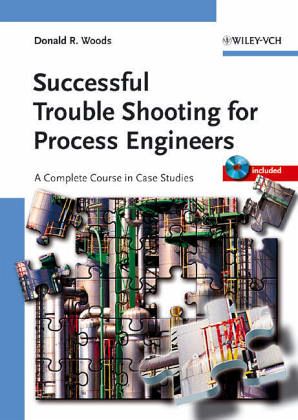
Successful Trouble Shooting for Process Engineers
A Complete Course in Case Studies

PAYBACK Punkte
44 °P sammeln!
Chemical production processes consist of many complex apparatuses involving both moving and static parts as well as interconnecting pipes, control mechanisms and electronics, mechanical and thermal stages, heat exchangers, waste and side product processing units, power ducts and many others. Bringing such a complicated unit online and ensuring its continued productivity requires substantial skill at anticipating, detecting and solving acute problems. This book is the professional's and student's entrance to the fascinating and important world of trouble shooting for chemical, pharmaceutical an...
Chemical production processes consist of many complex apparatuses involving both moving and static parts as well as interconnecting pipes, control mechanisms and electronics, mechanical and thermal stages, heat exchangers, waste and side product processing units, power ducts and many others. Bringing such a complicated unit online and ensuring its continued productivity requires substantial skill at anticipating, detecting and solving acute problems. This book is the professional's and student's entrance to the fascinating and important world of trouble shooting for chemical, pharmaceutical and other production processes.













